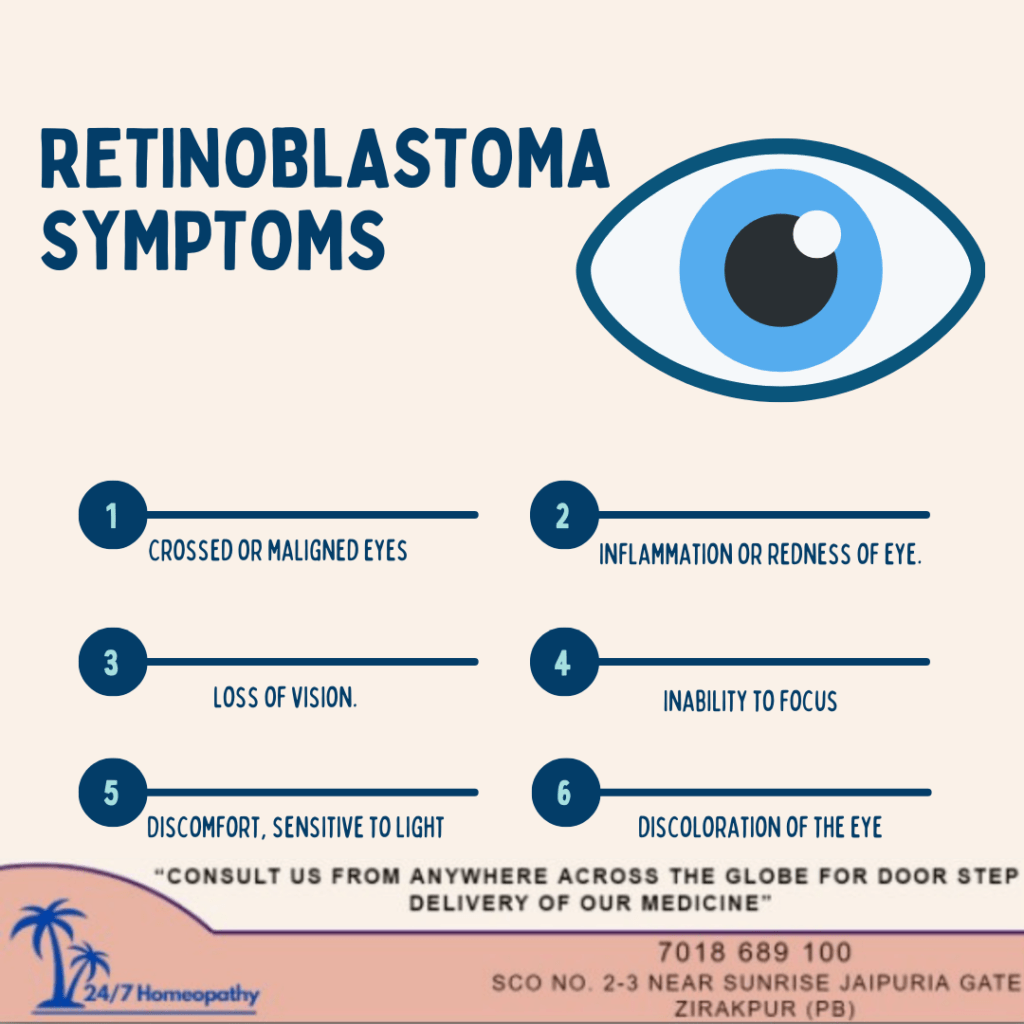RETINOBLASTOMA
In retinoblastoma, cancerous cells develop in the retina of the eye. It is a rare type of tumor which mainly develops in childhood mainly under the age of five.
Two types of Retinoblastoma:-
Hereditary retinoblastoma:- it is a type of retinoblastoma which is caused by genetic mutation that is present in the germ line cells (sperm or egg). Hereditary retinoblastoma mainly affects both eyes.
Non- hereditary retinoblastoma:- it develops after conception and it is not inherited from the parents. It mainly affects only one eye.
CAUSES:- the main cause of retinoblastoma is genetic mutation of cells. These mutations can either be inherited (from a parent) or can occur spontaneously during embryonic development.
It primarily affects the children below the age of 5.
It affects both males and females.

RETINOBLASTOMA SYMPTOMS:-
The main symptoms of retinoblastoma are white pupils. Appearance of white or pale colored pupils.
- Crossed or maligned eyes (strabismus).
- Inflammation or redness of eye.
- Loss of vision.
- Inability to focus.
- Children may squint or close one eye more frequently than the other.
- Discomfort, sensitive to light.
- Change in eye color.
- Sport or discoloration of the eye.
INVESTIGATIONS:-
- Eye examination:- through ophthalmoscope to examine the back of eye (retina) and recognize any tumor or growth.
- Ultrasound.
- MRI.
- CT SCAN.
- Biopsy.
- Physical examination.
RETINOBLASTOMA HOMOEOPATHIC TREATMENT:-
CAUSTICUM:-
- Cataract with motor disturbance.
- Inflammation of eyelids.
- Ulceration.
- Vision impaired, as if a film was before the eyes.
- Paralysis of ocular muscles after exposure to cold.
- Sparks and dark spots before the eyes.
PHOSPHORUS;-
- Thrombosis of retinal vessels and degenerative changes in retinal cells.
- Retinal problems with perception of light and hallucination vision.
- Redness and burning.
- Atrophy of optic nerve.
- Letters appear red.
- Sensation as if everything was covered with a mist.
- Black points seem to float before the eyes.
EUPHRASIA:-
- Catarrhal conditions.
- The eyes water all the time.
- Acrid lachrymation, bland coryza.
- Discharge thick and excoriating.
- Pressure in the eyes.
- Sticky matter from coryza, must wink to remove it.